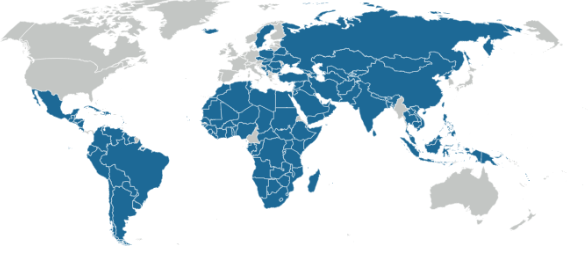Norway, Ireland, and Spain to Formally Recognize Palestine: A Shift in International Relations (GS Paper 2, IR)

Introduction:
- In a significant diplomatic move, Norway, Ireland, and Spain have announced their intention to formally recognize the state of Palestine, joining a growing list of nations advocating for Palestinian statehood.
- This decision marks a departure from the stance of countries like the UK and the US, which have refrained from officially recognizing Palestine.
Context:
- Currently, 143 out of 193 member states of the United Nations have extended recognition to a Palestinian state.
- However, notable nations like the UK and the US have withheld formal recognition.
- Meanwhile, Israel staunchly opposes the establishment of a Palestinian state in the West Bank and Gaza, citing concerns about its security and sovereignty.
Historical Background of the Israel-Palestine Conflict:
- The Israel-Palestine conflict traces its roots back to the United Nations' proposal for the partition of Palestine between Arab and Jewish states.
- The subsequent establishment of Israel in 1948 sparked the first Arab-Israeli war, resulting in the displacement of Palestinians from their homes, a period referred to as the "Nakba" or catastrophe.
Escalation:
- Subsequent conflicts, including the Six-Day War in 1967, further complicated the situation, leading to Israeli occupation of territories such as the West Bank, Gaza Strip, and East Jerusalem.
- Efforts to broker peace, such as the Oslo Accords in 1993, aimed to establish a framework for Palestinian self-governance but faced numerous challenges.
Recent Developments:
- The Abraham Accords, signed in 2020, normalized relations between Israel and several Arab states, signaling a shift in regional dynamics.
- However, tensions flared again in May 2021, with clashes between Israeli forces and Palestinians in Jerusalem escalating into an 11-day conflict with Hamas, resulting in significant casualties.
Implications of Recognition:
- Formal recognition of Palestine by Norway, Ireland, and Spain carries significant diplomatic implications.
- It demonstrates international support for Palestinian statehood and challenges the status quo in the Israel-Palestine conflict.
- Additionally, it may influence future negotiations and efforts to achieve a two-state solution.
Way Forward:
- Despite ongoing challenges, achieving peace based on a "two-state solution" remains a crucial objective.
- International organizations and diplomatic efforts play a vital role in facilitating dialogue and negotiation between Israel and Palestine, offering hope for a peaceful resolution to one of the world's most protracted conflicts.
Conclusion:
- The decision by Norway, Ireland, and Spain to formally recognize Palestine reflects a growing momentum in the international community towards supporting Palestinian statehood.
- While significant challenges persist, diplomatic initiatives and dialogue remain essential in advancing the cause of peace and stability in the region.


